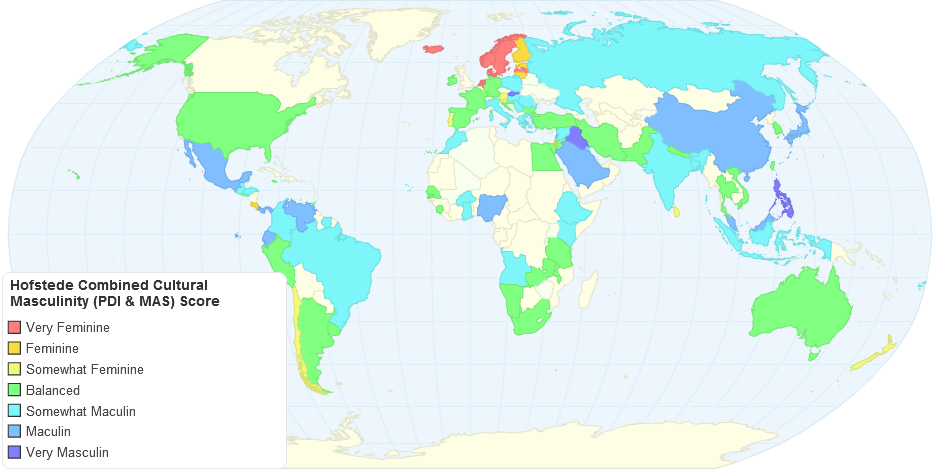Hofstede's model consists of five dimensions to describe a country's culture. Two dimensions depict archetypical masculin energies: Power Distance Index (PDI) and Masculinity (MAS). This map shows the combination of the two dimensions. There is no "good" or "bad".
PDI is the extent to which the less powerful members of organizations and institutions (like the family) accept and expect that power is distributed unequally. It suggests that a society's level of inequality is endorsed by the followers as much as by the leaders.
MAS versus its opposite, femininity, refers to the distribution of roles between the genders. Men's values from one country to another contain a dimension from very competitive and maximally different from women's values on the one side, to caring and similar to women's values on the other. The competitive pole has been called 'masculine' and the caring pole 'feminine'. The women in feminine countries have the same caring values as the men; in the masculine countries they are somewhat competitive, but not as much as the men, so that these countries show a gap between men's values and women's values.
14 years ago
